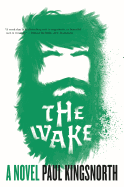It's the stuff of publishers' dreams--and nightmares. Grand Central was thrilled when The Three-Year Swim Club by Julie Checkoway was chosen as a buzz book at BookExpo America. To keep the buzz going, the publisher scheduled a series of bookseller pre-pub dinners. Then, last week, as Jimmy Franco, Grand Central's publicity director, landed in San Francisco to host an event, his phone was filled with a flurry of e-mails: Checkoway had suffered a concussion and could not travel.
"I actually thought of getting a plane back to New York that night," said Franco. But with some quick thinking and the assistance of Tom McIntyre, Hachette's Northern California sales rep, they were able to not only bring the author to the booksellers via phone from Utah, but offered the attraction of a special guest calling in from Hawaii: 77-year-old Jerry Miki, a second-generation swim team member.
The Three-Year Swim Club tells the unlikely story of a Japanese-American teacher, with little knowledge of swimming, who inspired a group of children of sugar company workers--kids who swam in the plantation's irrigation ditches--to become champions. In 1937 Soichi Sakamoto drew up a three-year contract for his club members to commit to fierce training--with their sights on the 1940 Olympiad in Tokyo.
World War II cancelled the Olympics that year, but at a time when Japanese were feared and discriminated against, the Swim Club prevailed in national and world competitions and expanded beyond the initial three years to produce two generations of the best swimmers in American history.
Checkoway told the booksellers that she was shocked no one had told the story before--until she met the surviving members of Swim Club while working on the book. "They were some of the most intensely private, humble, gracious and generous people I have ever met," she said. Still, the author wondered, "How could a group of people known as the greatest athletes of their time be forgotten?"
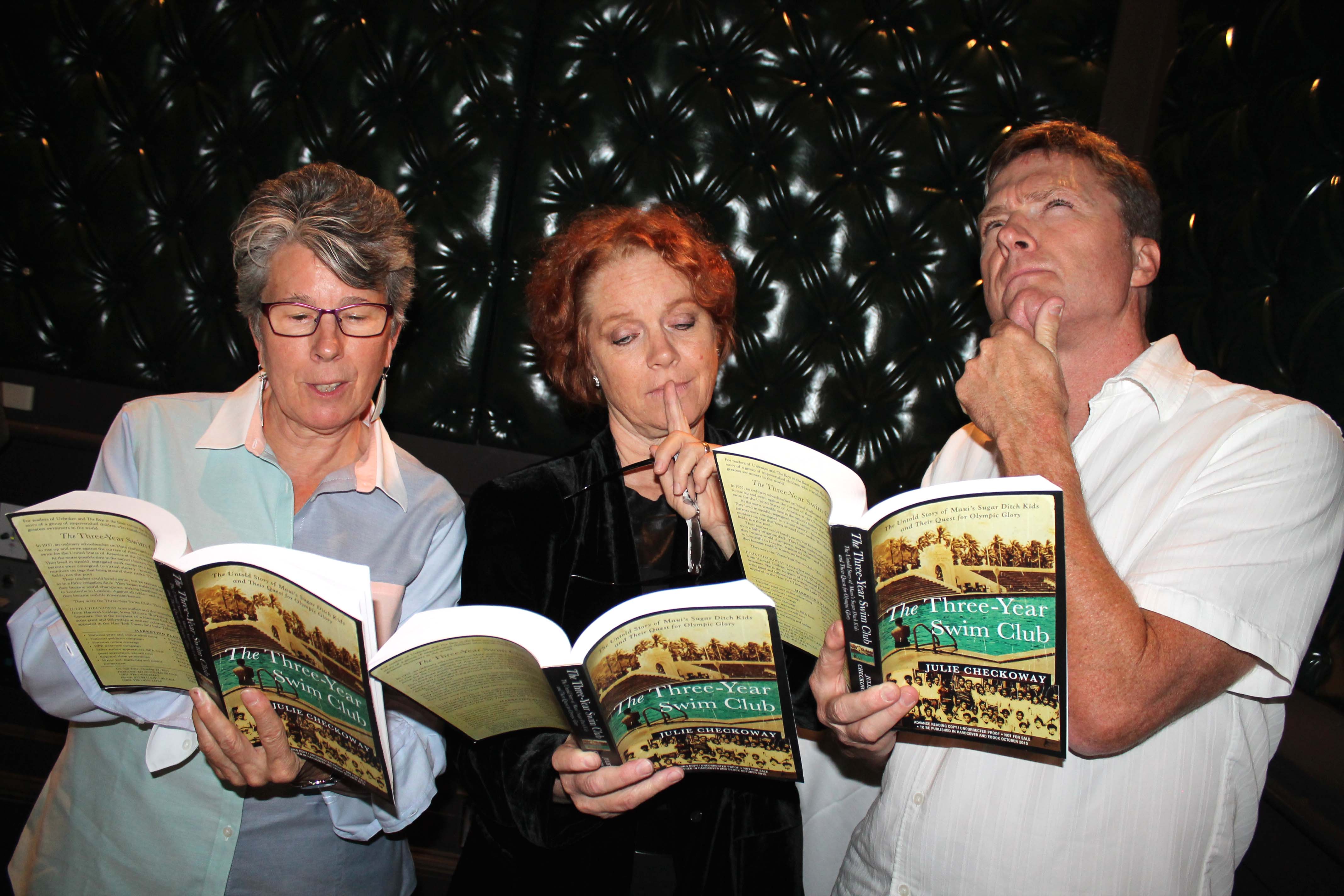 |
|
Sheryl Cotleur and Vicki DeArmon from Copperfield's with Green Apple Books' Kevin Ryan at the accidentally authorless event for The Three-Year Swim Club.
|
Calling from the island of Kona, Miki explained that, until statehood in 1959, Hawaiian society "was completely segregated," and no one wanted to acknowledge the exploitation of sugar workers. Checkoway described the conditions of the sugar plantations as "the closest to slavery in the 20th century in our country."
"Coach Sakamoto never harbored any resentment," said Miki. "He just worked us and praised us to rise above ourselves. He taught us discipline, hygiene and the spirit of never giving up." In 1957, Miki graduated both from high school and Swim Club to attend college in Indiana on a swimming scholarship.
He described a typical day for the club--which trained seven days a week--that started right after school and went as late as 10 p.m. They'd do sprints, swim laps, use kickboards and inner tubes, do some more sprints and then get out of the pool to do wind sprints. By Miki's time on the team, Coach Sakamoto had arranged for the use of an outdoor pool for practice and zealously raised money for the team to travel for competitions.
"That was really special, I gotta say," remarked Kevin Ryan from Green Apple Books when the call with Miki ended. Other booksellers shared stories of their own swimming experiences. Bill Dito from Books Inc. shared that he once worked for a sugar company in Hawaii.
As for the book, Christopher Phipps from Diesel, A Bookstore suggested that The Three-Year Swim Club "could take the place of The Boys in the Boat." That is the exact kind of buzz a publisher dreams of--and reason enough for hosting a dinner even when the guest of honor cannot attend. "You make lemonade," said Franco. And dare we say, a splash? --Bridget Kinsella
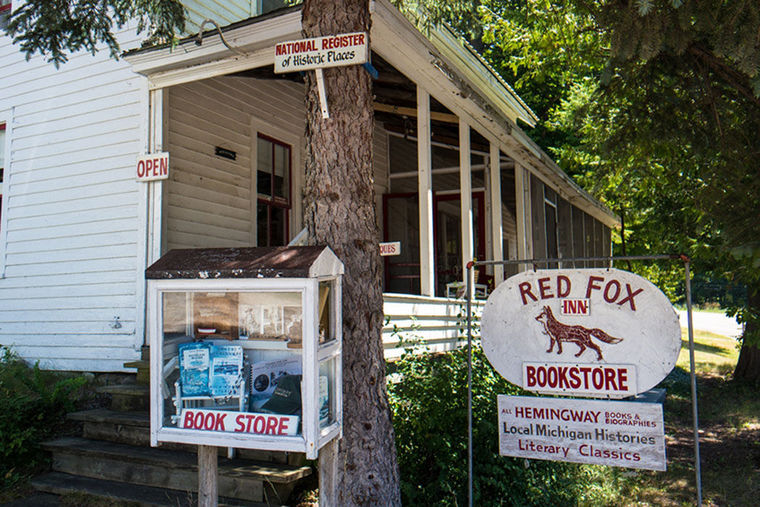











 Bodleian Library Publishing, which is part of Oxford University's Bodleian Library, will launch a
Bodleian Library Publishing, which is part of Oxford University's Bodleian Library, will launch a 

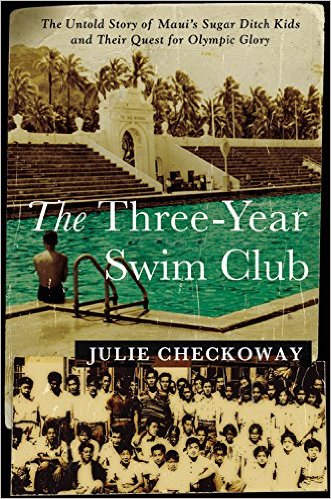


 Last Saturday, many friends from the book world celebrated
Last Saturday, many friends from the book world celebrated  In an ode to bookshops as places "
In an ode to bookshops as places "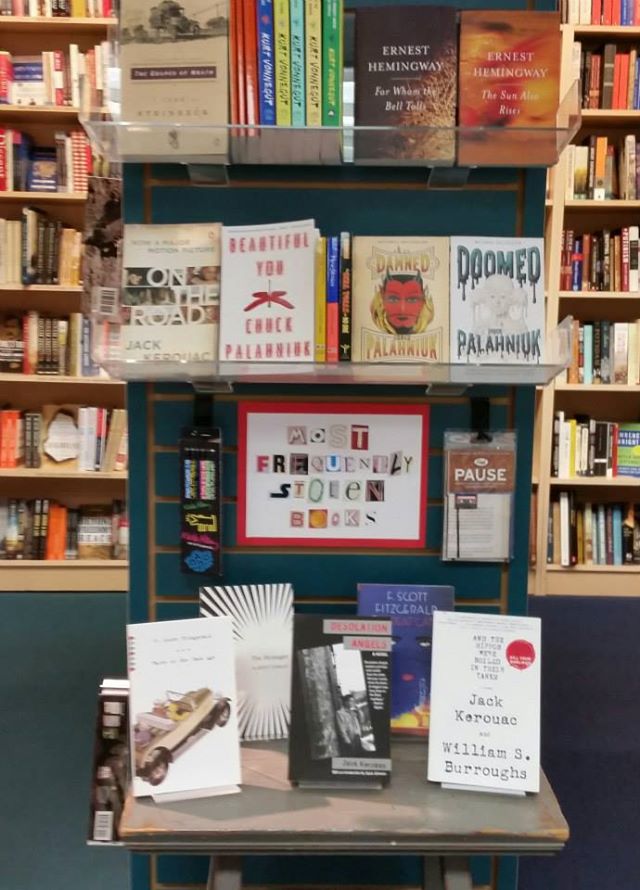 From a post yesterday on the Facebook page for Porter Square Books, Cambridge, Mass.: "Yes folks, it's a display of
From a post yesterday on the Facebook page for Porter Square Books, Cambridge, Mass.: "Yes folks, it's a display of  Fantastic Cities: A Coloring Book of Amazing Places Real and Imagined
Fantastic Cities: A Coloring Book of Amazing Places Real and Imagined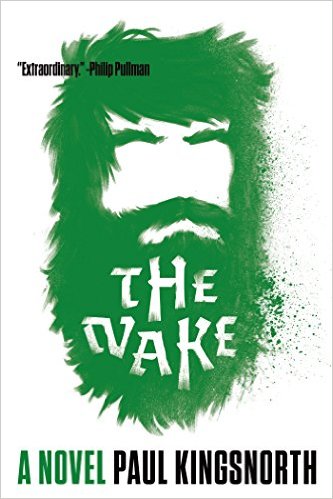 The Wake is a singular debut novel by Paul Kingsnorth (One No, Many Yeses; Real England), set in England immediately following the Norman invasion of 1066. Its first-person narrator is a landowner named Buccmaster, who has lost everything to the attack: his family, his home, his land and his privilege. He takes to the fens and woods, with revenge in his heart and an intention to drive the French from his land and all of England. There he becomes one of the guerrilla fighters known as green men, whose chapter in history is little known.
The Wake is a singular debut novel by Paul Kingsnorth (One No, Many Yeses; Real England), set in England immediately following the Norman invasion of 1066. Its first-person narrator is a landowner named Buccmaster, who has lost everything to the attack: his family, his home, his land and his privilege. He takes to the fens and woods, with revenge in his heart and an intention to drive the French from his land and all of England. There he becomes one of the guerrilla fighters known as green men, whose chapter in history is little known.